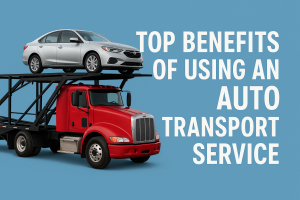Driving across state lines is only simple on a map, anyhow, here’s what you need to know about buying a car in from out of state.
Key Takeaways:
- Out-of-state car purchases have multiple built-in cost factors
- Driving long distances by yourself can create physical and financial dangers
- It’s important to know interstate laws regarding emissions and insurance
- A car transport service can address almost every related risk
Finding the right car can mean looking beyond the local lots — sometimes way beyond. Committing to an out-of-state car purchase means a buyer really has their heart set on that particular vehicle. There are some key factors to consider if they want to get their purchase home smoothly.
The longer the vehicle’s journey is, the more potential pitfalls pop up along the way. This guide will tell you everything you need to consider before closing the deal, from paperwork and potential expenses to legal matters and long-distance driving.
The financial considerations
A favorable price tag is one common reason for out-of-state buying. Regional incentives and even the weather on the seller’s side can make a model significantly cheaper than it would be in your home state. Don’t let those savings get eaten up by overlooking expensive considerations, like:
- Not asking for an inspection: Vehicles can look great in the plentiful pictures you should ask the seller to provide. Paying for the vehicle to be inspected before buying (or requesting proof of recent inspection) prevents expensive repairs or replacements that can’t be seen in photos.
- Forgetting the bill of sale and signed title: These essential documents prove you’re the new owner. Not requesting them from a private seller can lead to many problems. Especially if you are driving it back home and get stopped by law enforcement.
- Neglecting the vehicle history report: Knowing a vehicle’s past when it comes to previous owners, mileage, accident history, and repairs can help you decide if the asking price is fair.
- Falling victim to auto transport scams: Fake transport companies are everywhere, and they love taking advantage of unsuspecting buyers needing interstate shipping. Getting scammed can mean paying far more than necessary to get the vehicle from A to B. It could even mean the car being stolen outright. You should learn the signs that indicate you may be dealing with criminals.
The distance factors
Picking up a vehicle by yourself from the state next door could present a reasonable self-driving opportunity and potential cost savings. However, buyers must remember that the connected costs and risks for both vehicle and driver start to climb with every added mile. Gas, tolls, snacks, damage from on-road debris, and travel fatigue are things that can combine to create a costly journey.
This is particularly true on a long-distance trip. The dangers of driving your out-of-state car purchase for extended periods must be seriously considered. Don’t think long-distance means coast to coast: A trip of even 50 miles qualifies and may affect your ability to get your new vehicle and yourself home in one piece.
Driving solo could also add the hassle of obtaining a temporary license plate for interstate travel. This is typically a low-cost step, but it could cause issues if overlooked.
Get the right information to understand the law
Paying sales tax on an out-of-state car purchase can be confusing. This tax is always paid in your state of residence, even if the seller’s state doesn’t impose it (unless neither location taxes sales). Private sellers and dealers create different tax scenarios: Private sales may require a tax fee upon registration. While the dealership is likely to make the tax part of the price before submitting to your state office.
Presuming the vehicle meets emission standards in its new home state is a mistake. These limits vary by location, so get proof from the seller that the vehicle makes the grade. Not registering the car in time can also lead to penalties and fines. Buyers usually only have a 30-day window to do so following the purchase, so don’t waste time.
Failing to consult with your auto coverage provider (or having no policy at all) can land you in hot water before and after an out-of-state purchase. Call your insurer if you’ve got a vehicle on your shortlist. This is to make sure you’re meeting the necessary insurance requirements in your home state. You may already be covered for a limited time after the purchase, but don’t bank on it.
Car shipping can help with successful out-of-state purchases
Working with an experienced car transport broker instantly addresses all the related risks of out-of-state car purchases. This happens by connecting you with a network of trustworthy auto carriers around the country. You can count on their credentials because the car shipping broker will have vetted them all closely. This is to ensure they have the right experience, good track records, plus all necessary insurance, licensing, and certifications.
Your broker will present these candidates, so you don’t have to spend time researching multiple carriers or making long-haul drives by yourself between one or more states. Brokers will also make all related costs transparent and easy to understand (especially the hidden ones) and discuss the pros and cons of open, enclosed, and flatbed car shipping options.
This means you won’t get any nasty financial surprises. Your broker will also act as a middleman to keep you and your car carrier in touch throughout the process, even if you’re buying a car from ou the other side of the country.
Contact Mercury for nationwide auto shipping
Mercury Auto Transport is a full-service auto shipping broker specializing in putting customers in touch with carriers nationwide. We can be there to help ship your vehicle reliably and with a minimum of fuss. Contact our team today at info@mercuryautotransport.com or call (800) 553-1828 to make your out-of-state car purchase safer and more cost-effective.






